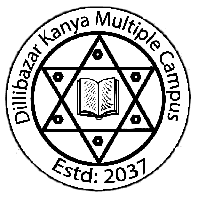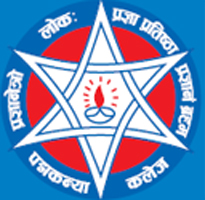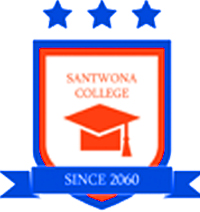Overview
MA in Sociology at Tri-Chandra Campus, Ghantaghar, Kathmandu (affiliated with TU)
The Master of Arts in Sociology at Tri-Chandra Campus, affiliated with Tribhuvan University (TU), is a postgraduate program designed to understand society, culture, and human interactions comprehensively. This program delves into sociological theories, research methodologies, and their applications to analyze and address contemporary social issues. It combines students with critical thinking and analytical skills for academic careers, research, policy-making, and social development.
Program Duration
The MA in Sociology program spans two years and is divided into four semesters. Each semester consists of core and elective courses, research training, and seminars. The structured timeline ensures a gradual progression from foundational knowledge to advanced specialization, culminating in a research thesis in the final semester.
Eligibility Criteria
To enroll in the MA in Sociology program at Tri-Chandra Campus, applicants must meet the following criteria:
-
Must have a bachelor’s degree in Sociology or a related field from a recognized institution.
-
Must obtain a minimum CGPA of 2.0 or second division in the undergraduate program.
-
Students from other disciplines may be required to take prerequisite courses as determined by the university.
Admission Process
-
Application Submission: Complete the application form, available online or at the campus admission office.
-
Entrance Examination: Students must take the entrance test conducted by Tribhuvan University, which assesses their knowledge of sociology and analytical skills.
-
Merit-Based Selection: Admission is granted based on performance in the entrance test and academic records.
-
Document Verification: Submit academic transcripts, citizenship proof, and recommendation letters.
-
Enrollment: Confirm your admission by paying the required fees and completing the registration process.
Course Outline
The curriculum is designed to provide an in-depth understanding of sociological concepts, research, and applications. Below is a detailed breakdown:
Year 1, Semester 1:
-
Sociological Theories: Classical
-
Research Methodologies in Sociology
-
Social Institutions and Structures
-
Practical: Fieldwork and Data Collection
Year 1, Semester 2:
-
Sociological Theories: Contemporary
-
Social Stratification and Inequality
-
Gender and Society
-
Practical: Case Studies and Surveys
Year 2, Semester 3:
-
Globalization and Social Change
-
Sociology of Development
-
Elective: Urban Sociology or Environmental Sociology
-
Seminar: Current Issues in Sociology
Year 2, Semester 4:
-
Thesis/Research Project
-
Elective: Medical Sociology or Industrial Sociology
-
Advanced Research Techniques
-
Practical: Community-Based Research
Subjects Offered
-
Classical Sociological Theories
-
Contemporary Sociological Theories
-
Research Methodologies
-
Social Institutions
-
Gender and Society
-
Sociology of Development
-
Globalization
-
Social Stratification
-
Urban Sociology
-
Environmental Sociology
-
Medical Sociology
-
Industrial Sociology
Program Objectives
-
To provide an in-depth understanding of sociological theories and their applications.
-
To develop advanced research and analytical skills for examining societal issues.
-
To prepare students for academia, social research, and policy-making leadership roles.
-
To enhance critical thinking and innovative solutions to address social challenges.
-
To enable an appreciation for cultural diversity and social justice.
Teaching Methodology
The program adopts a student-centered teaching approach, combining interactive lectures, group discussions, case studies, and practical research. Faculty members employ evidence-based teaching methods and integrate technology, such as data analysis software, to enhance learning. Students actively engage in workshops, seminars, and fieldwork, ensuring a well-rounded academic experience.
Learning Outcomes
Graduates of the MA in Sociology program will:
-
Demonstrate a deep understanding of sociological theories and frameworks.
-
Conduct independent and collaborative research using scientific methodologies.
-
Analyze social structures, institutions, and cultural dynamics critically.
-
Apply sociological knowledge to address real-world social issues.
-
Communicate effectively in academic and professional settings.
-
Contribute to the development of equitable and sustainable social policies.
Future Scope
The MA in Sociology program prepares students for advanced academic pursuits, such as a Ph.D. in Sociology or related disciplines. It also opens pathways to interdisciplinary studies in anthropology, social work, and international development. Graduates can specialize in diverse fields and contribute globally to the academic, social, and policy-making landscape.
Career Prospects
Graduates of the MA in Sociology program can pursue careers in:
-
Academia and Teaching
-
Social Research and Analysis
-
Policy Development and Advocacy
-
Community Development and Social Work
-
NGOs and International Organizations
-
Corporate Social Responsibility (CSR)
-
Urban Planning and Environmental Management
-
Media and Journalism
Scholarship Opportunities
Tri-Chandra Campus provides various scholarships for meritorious and economically disadvantaged students. Scholarships are also available for students from marginalized communities and those meeting government or institutional criteria. Students can inquire about specific opportunities during the admission process.
Fee Structure
Tribhuvan University determines the tuition fees for the MA in Sociology program, which may be subject to periodic revisions. The campus administration office has detailed fee structures.
Extracurricular and Co-Curricular Activities
Students are encouraged to participate in sociology clubs, academic conferences, and community outreach programs. These activities provide hands-on experience, foster leadership skills, and create networking opportunities with professionals in the field.
Real-World Application
The program emphasizes practical applications through internships, fieldwork, and research projects. Students engage with communities, analyze social phenomena, and propose actionable solutions, bridging the gap between theory and practice.
Sustainability and Social Impact
The curriculum integrates sustainability by exploring topics like environmental sociology and sustainable development. Students are trained to design socially responsible policies and interventions that promote equity, resilience, and sustainability.
Skill Development
The program focuses on developing critical skills, including research design, data analysis, report writing, and communication. Students also gain problem-solving, teamwork, and cultural competency expertise, preparing them for diverse professional roles.
Global Perspective
Courses on globalization, cultural dynamics, and social change give students a global perspective. The program equips graduates to address international social challenges and contribute to global research and policy initiatives.
Facilities and Support
Tri-Chandra Campus offers well-equipped classrooms, a comprehensive library, and access to research journals. Students also benefit from academic counseling, mentorship programs, and career guidance services, which ensure a supportive learning environment.
Why Choose an MA in Sociology?
This program stands out for its interdisciplinary approach, rigorous curriculum, and practical applications. It prepares students to tackle complex social issues, fostering critical thinking and innovative solutions. With its emphasis on research and community engagement, the program equips graduates for impactful careers in sociology and beyond.
Is the MA in Sociology Right for You?
This program is an excellent fit if you are passionate about understanding society, exploring cultural dynamics, and addressing social inequalities. It provides a comprehensive education that combines theoretical knowledge with practical skills, catering to diverse academic and professional aspirations.
What is the Future of the MA in Sociology?
The demand for sociologists is increasing globally, driven by the need for social research, policy-making, and community development. Graduates will play vital roles in shaping equitable and sustainable societies and contribute to academic and professional advancements in sociology.
How to Improve Your Study of Sociology Education
To excel in sociology, adopt an interdisciplinary approach by exploring related fields like anthropology and political science. Engage in active learning through fieldwork, research projects, and discussions. Deepen your knowledge by using resources such as academic journals and online courses. Review key concepts regularly and seek mentorship from experienced faculty members.
Conclusion
The MA in Sociology program at Tri-Chandra Campus provides a holistic education in understanding and addressing societal challenges. The program prepares graduates for impactful careers in academia, research, and social development by integrating rigorous academics with practical applications. Whether pursuing further studies or professional opportunities, this program equips students with the skills and knowledge to contribute meaningfully to society.
Contact Tri Chandra Multiple Campus's administrative office for detailed information on the MA in Sociology course, including fees, scholarships, facilities, counseling, eligibility criteria, etc.

















